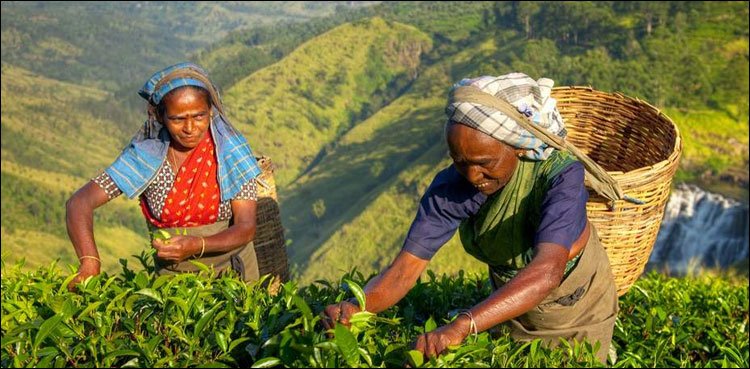Colombo: Tea, one of the country’s most lucrative agricultural industries, has suffered due to the bankruptcy of Sri Lanka. Sri Lanka is the third largest producer of tea.
China, India, Sri Lanka and Kenya together produce 75% of the world’s tea.
Arulpan and her husband work several hours a day in a tea field in Sri Lanka, but after a month of hard work, they can earn only 30,000 Sri Lankan rupees or about eighty dollars.
The money is not enough for Arulpan, her husband, three children and her mother-in-law, a 42-year-old woman who says her family is having to cut back on food due to rising inflation.
Arulpan is one of the millions of Sri Lankans who are currently facing the island nation’s historic economic crisis.
Sri Lanka’s economy was heavily dependent on tourism, but the Code 19 epidemic severely affected the country’s tourism industry. Tax cuts had already been made by the government, due to which the government’s revenue was already low.
Now that Sri Lanka’s foreign exchange reserves have plummeted and it is unable to meet the basic necessities of life such as oil, medicine and food, the country has resorted to the International Monetary Fund (IMF) for help. What is the decision
Protests have been going on for the past several weeks due to inflation and shortage of food items.
People like Arulpan, who work in the tea fields, have more problems. They do not have any land of their own, which they can cultivate to meet the food needs of their families.
Tea industry severely affected
Thousands of people are involved in the tea industry in Sri Lanka, which has been hit hard by the sudden ban on the import of chemical fertilizers by the Raja Pakse government last April.
Although the decision has been reversed, the ban has led to a severe shortage of chemical fertilizers in the country and most farmers do not have the experience to use indigenous fertilizers.
Roshan Raja Dorai, a spokesman for the Tea Plantation Association, said the power outage, shortage of petrol and high inflation had hit the tea industry hard.
Arulpan and her husband do not want their children to work in the tea plantations but fear that they will not be able to send their 22-year-old son to university because of the crisis. Unwillingly, she is forced to work in a factory with her son.
